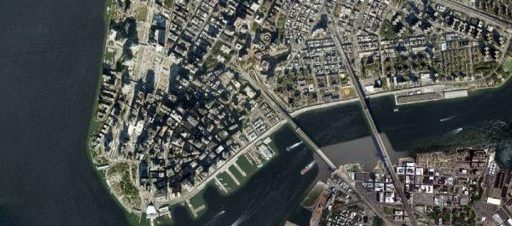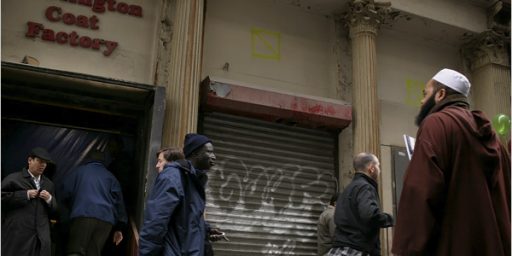Islamic Parties Carry Iraq Local Vote
Islamic Parties Carry Iraq Local Vote (WaPo, A10)
Islamic parties will be heavily represented on provincial councils across Iraq, according to final results released Friday from races in 12 provinces that revealed enthusiastic voter participation in the north and south and lower turnout in Baghdad and Sunni Muslim-populated areas. “This is a message to all political parties to respect the Islamic identity of the people,” said Jalaleddin Saghir, a preacher at a prominent mosque in Baghdad and a candidate on a Shiite Muslim-backed political list.
The results from the Jan. 30 elections — which did not include figures for the 275-seat National Assembly — were released on another day of deadly insurgent attacks. Eleven Iraqis were killed in a massacre at a bake shop in Baghdad, and at least 12 worshipers were killed when a car bomb exploded outside a mosque in a nearby town. Also, the U.S. military said a Marine and an Army soldier were killed Friday in separate traffic accidents, the Associated Press reported.
Elections officials, facing growing complaints, said results of the National Assembly vote would be available in “a few days, maximum.” “The counting is in the very final stages,” said Abdul-Hussein Hendawi, the head of the election commission.
The provincial council returns provided the first solid indication of voter turnout in Iraq’s first free election since the 1950s. In two Kurdish-populated areas in northern Iraq, turnout reached 80 and 89 percent; it reached 73 percent around the holy cities of Najaf and Karbala in the predominantly Shiite south. But turnout was significantly lower — 48 percent — in Baghdad, and dropped to 34 percent in Diyala province, east of Baghdad. Elections officials cautioned that turnout totals for the national election could differ from the provincial totals. At most polls, voters were given two ballots — one national, one local — and officials said some may have turned in only one.
That religious parties are going to dominate at the provincial level is hardly surprising, given that the mosque is the only prominent institution in Iraqi culture now that the Baath regime is out of power. Indications so far, though, are that the National Assembly will be more secular. That’s a function of political calculation by the factional leaders, especially Shiite Ayatollah Sistani rather than the natural outgrowth of the democratic process. One hopes that this secularist tradition at the national level can be institutionalized in the permanent constitution.




